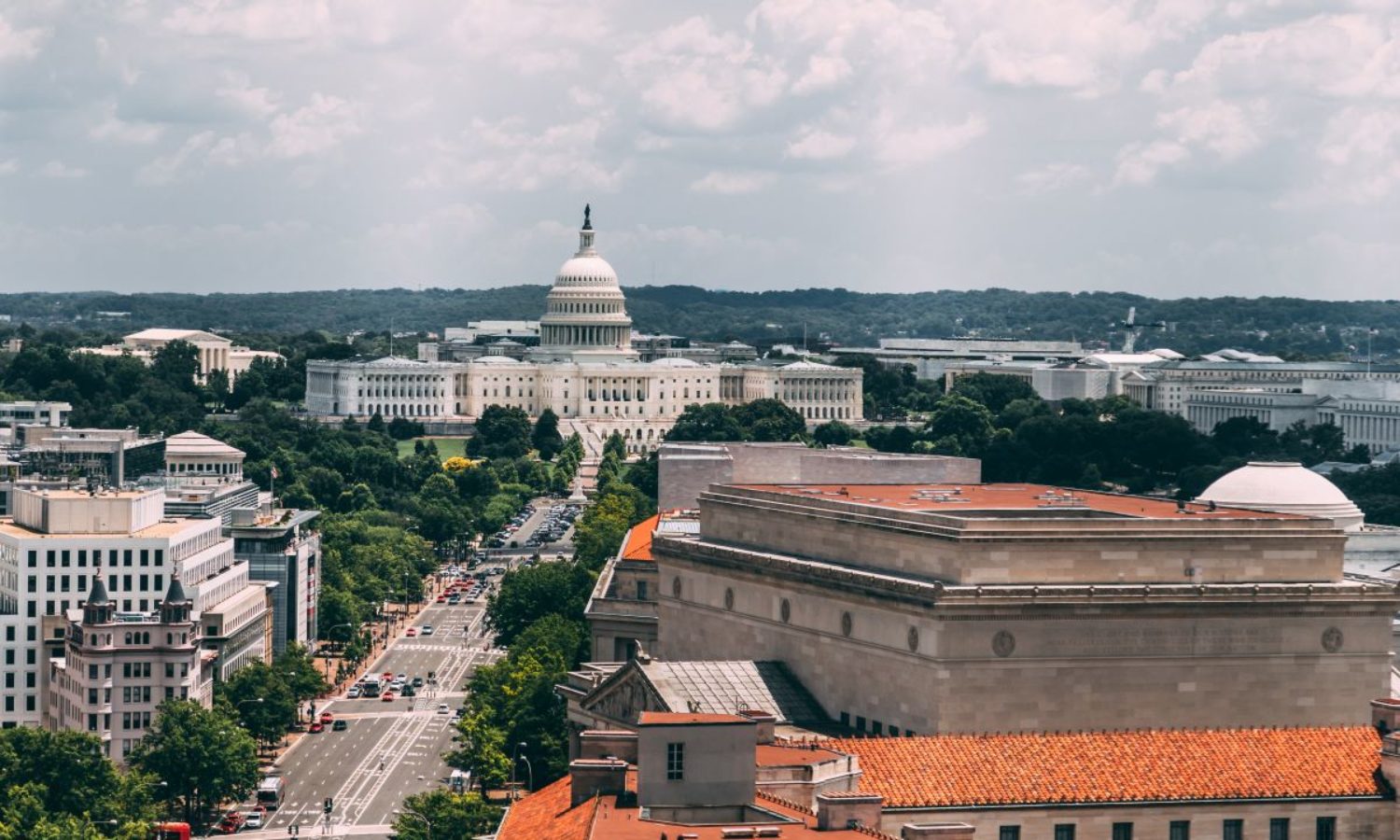i2Coalition April 2021 Legislative Briefing
Your brief update on important Internet policy issues
OUTLOOK
The Biden Administration and Congressional Democrats are focused on passing the President’s American Jobs Plan which was announced on March 31, 2021. The $2+ trillion plan seeks to create jobs through multiple initiatives, including the rebuild and modernization of traditional physical transportation infrastructure (e.g., roads, highways, bridges, ports, airports, and transit systems), as well as the creation and deployment of half a million charging stations for electric vehicles. The plan would fund many other areas, including: $100 billion for broadband deployment in unserved and underserved areas (including the more than 35 percent of rural Americans who lack access to broadband at minimally acceptable speeds); improvements to the electrical grid and clean water systems; and research and development to modernize manufacturing and retrain workers.
President Biden has said he welcomes opportunities to negotiate with Republicans to reach some bipartisan consensus on these infrastructure investments. To that end, he has been presiding over a series of White House meetings with lawmakers of both parties. House and Senate Republicans have asserted that the American Jobs Plan is too expensive and contains too many things not related to infrastructure, although some recent polls indicate strong and broad support for the plan among American voters. Republican Senators are working on a counterproposal to the Biden plan, expecting it to cost between $600 and $800 billion. In the divided 50-50 Senate, passing the American Jobs Plan is a major challenge given the Republicans’ unified opposition as well as the expressed unwillingness of two key Democrat Senators (Joe Manchin (D-WV) and Krysten Sinema (D-AR)) to support elimination or weakening of the filibuster. This scenario limits Senate Democrats’ procedural options for passing the American Jobs Plan, and they are considering other ways to pass it in whole or in part through the budget reconciliation process. The public health battle against COVID-19, especially the rollout of vaccines and getting new surges under control in specific regions, remains a top national priority. The CDC reports that as of April 21, more than 26% of the total U.S. population has been fully vaccinated. The Senate has also continued conducting confirmation hearings and votes for senior officials nominated to serve in the Biden Administration.
TECH POLICY PRIORITIES
Section 230. Bipartisan interest in reforming Section 230 remains strong in Congress, but no clear approach has yet emerged to address all of the concerns raised. As expected, Section 230 reform was frequently discussed during the 5 ½ hour March 25 House Energy & Commerce joint subcommittees hearing about misinformation and extremism at which the CEOs of Facebook, Alphabet, and Twitter testified. Significantly, both Democrat and Republican members at the hearing expressed renewed concerns about the impact of social media platforms on children’s mental health and privacy thereby signaling that bills addressing these issues can be expected. Other members at the hearing confirmed that they would be introducing Section 230 reform bills to address discrete issues, such as protecting civil rights. On April 15, the Republican Staff of the House Energy & Commerce Committee released an outline of a “Big Tech Accountability Platform” which proposes for discussion a series of legislative concepts to, among other things, reduce or eliminate Section 230 liability protections for large social media platforms, regulate content moderation policies, increase transparency, expand online protections for children, and increase Big Tech companies’ collaboration with law enforcement. Scrutiny of social media platforms is also accelerating in the Senate, with an April 27 hearing planned by the Senate Judiciary Subcommittee on Privacy, Technology & the Law to address social media platforms’ use of algorithms.
Antitrust/Competition. The House and Senate Judiciary Committees are actively addressing antitrust proposals to curb the dominance of large tech platforms through a series of hearings. The House Judiciary Committee held a markup and in a party-line vote passed its major tech antitrust report so that the document could move to the House floor for approval as an official document. The House Judiciary Antitrust Subcommittee Chair David Cicilline (D-RI) is expected to introduce tech antitrust bills in the near future. In the Senate, the Antitrust Subcommittee Chair Amy Klobuchar (D-MN), who already introduced an antitrust reform bill in February 2021, held the first in a series of tech-related antitrust hearings on April 21 focusing on competition in app stores.
Federal Privacy. Congress continues to consider approaches to comprehensive federal consumer data privacy legislation and hearings may be scheduled by early summer. Numerous state legislatures are debating their own state bills on consumer data privacy. On March 25, on the issue of transatlantic data flows, the EU Commissioner for Justice, Didier Reynders, and the U.S. Secretary of Commerce, Gina Raimondo, jointly announced that they would intensify negotiations on an enhanced EU-U.S. Privacy Shield framework to comply with the July 16, 2020 judgment of the Court of Justice of the European Union in the Schrems II case.
Copyright/IP. The Senate Judiciary IP Subcommittee chaired by Senator Leahy (D-VT) held an April 21 hearing to discuss improvements to access and inclusivity in the patent system. The Senate Judiciary IP Subcommittee Ranking Member Thom Tillis (R-NC) continues to assess the feedback received from stakeholders in March on his discussion draft DMCA reform bill.
Broadband. The Biden Administration proposed substantial funding ($100 billion) in the American Jobs Plan to expand broadband deployment in unserved and underserved areas with the goal of reaching 100% deployment by the end of the decade. The FCC, led by Acting Chair Jessica Rosenworcel, has intensified work on improving broadband deployment and generating accurate broadband mapping data under existing statutory authority and programs. Consumer Reports conducted a February 2021 survey which found that 75% of Americans say they need to access the Internet or use other services provided by their Internet service provider (ISP), without disruption, to carry out their daily activities seven days a week. The survey also found that 76% of Americans agreed that Internet service is as important as electricity or water service in today’s world.

For more in-depth updates on Internet policy that impact your organization, please contact us about joining the i2Coalition.

